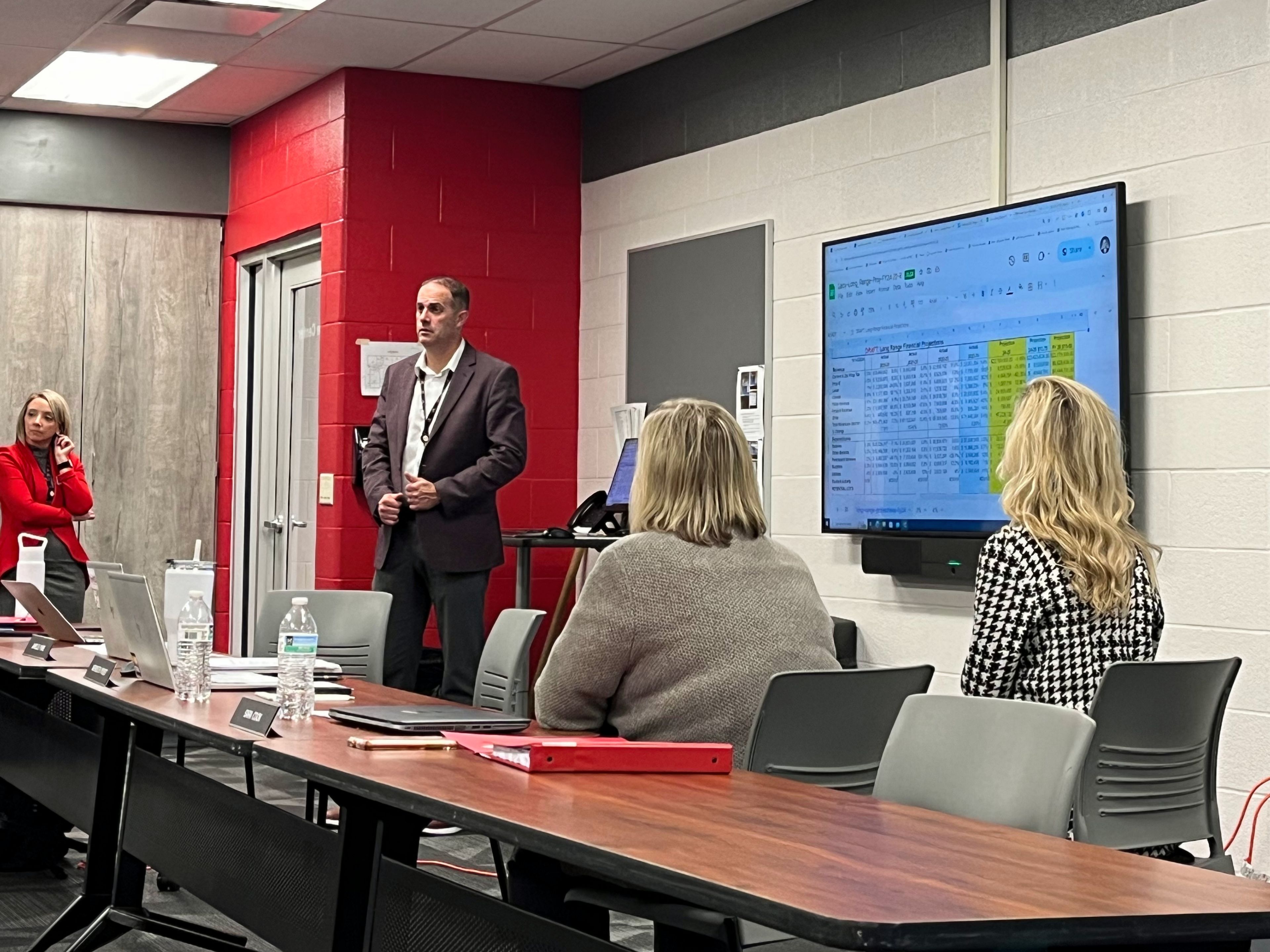Jackson School District approves bond refinancing, discusses looming financial impact of minimum wage increase
Jackson schools are set to refinance a 2017 bond to potentially save $282,000 without extending terms. Meanwhile, a potential minimum wage hike to $15 by 2026 could strain the district's budget.
Jackson Board of Education members unanimously voted to refinance the district's 2017 general obligation bond during Thursday's meeting at Jackson High School.
The bond issue, Proposition J, was passed with nearly 3/4 (72%) of the vote during the April 4, 2017, election. According to a Southeast Missourian article from April 5, 2017, the bond issue allowed the district to maintain a $0.3708 per $100 of assessed valuation debt-service levy on personal property taxes instead of directly raising taxes.
The bond is callable as of March 1, 2025, meaning the district can repurchase it before its maturity date. The district has been working with Stifel Financial Corp. to refinance and, in turn, lower the bond's interest rate.
According to Stifel's public finance director Becky Esrock, the district can refinance the debt only on a "tax-exempt basis for savings within 90 days of that call date."
"We'll continue to monitor the market," Esrock said. "The market's been a little all over the place with interest rates lately, but this refinancing would be purely for savings, no extension of the final maturity. It would just be to lower the district's interest rate, and then the interest payments on that outstanding debt."
According to Jackson's deputy superintendent of finance Matt Lacy, the district still owes $8.5 million in principal. Refinancing will allow the district to "capture improved interest rates for a potential savings of $282,000" but "will not extend or lengthen repayment terms."
Additionally, the board discussed the potential impact of Missourians voting to pass Proposition A, which will raise the minimum wage to $15 an hour by 2026, starting with an increase to $13.75 an hour beginning Jan. 1, 2025. Jackson superintendent Scott Smith said the increase will "have a large impact on our district for years to come," specifically non-certified employees such as cooks, custodians, bus drivers, paraprofessionals and teacher's aides.
According to Lacy, who presented the potential financial impact of the increase, the total cost of employees currently is a little more than $16 million. By raising the minimum wage by $1.25 in January, Lacy said it would increase that cost to just over $17 million.
"The difference for 12 months is $900,000, so if we were to go active in January through the end of June, it's an additional $450,000 minimum that we would have to incur on our budget," Lacy said. "It's probably actually going to be a little north of that. If you include Kids' Club, which I think you're going to have to, you're probably pressing $500,000 if you do the increase effective July 1, because we start our budget over in July."
Lacy said once the minimum wage increases to $15 an hour, it will require the district to budget an additional $1.5 million for employee costs, which Smith said might hinder the district's ability to remain competitive.
"Once you get an increase, it stays forever," Smith said. "What we were looking for in the last few years, trying to pass a tax initiative to try and get our salaries to be more competitive. This won't help us be competitive."
Connect with the Southeast Missourian Newsroom:
For corrections to this story or other insights for the editor, click here. To submit a letter to the editor, click here. To learn about the Southeast Missourian’s AI Policy, click here.










